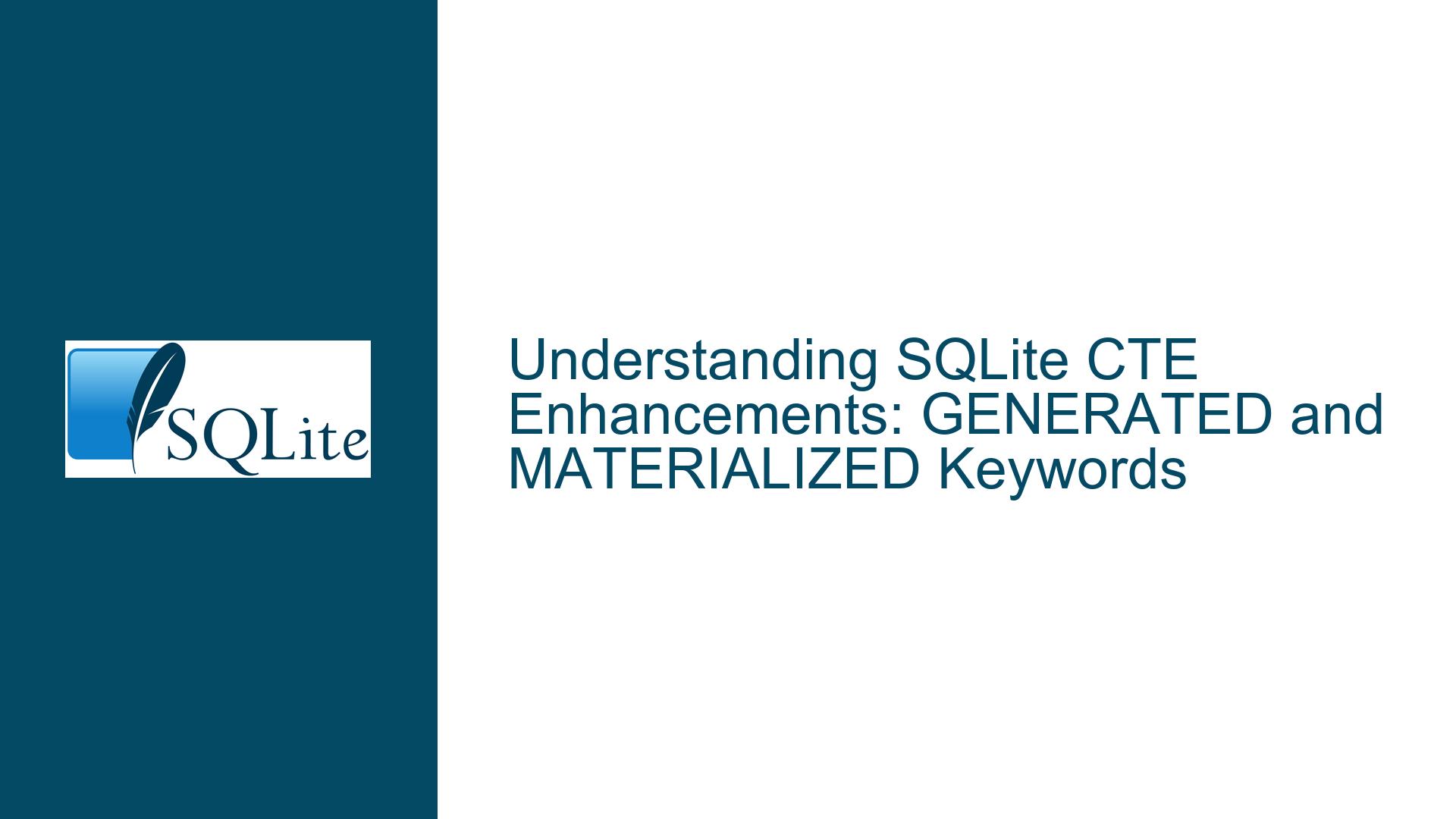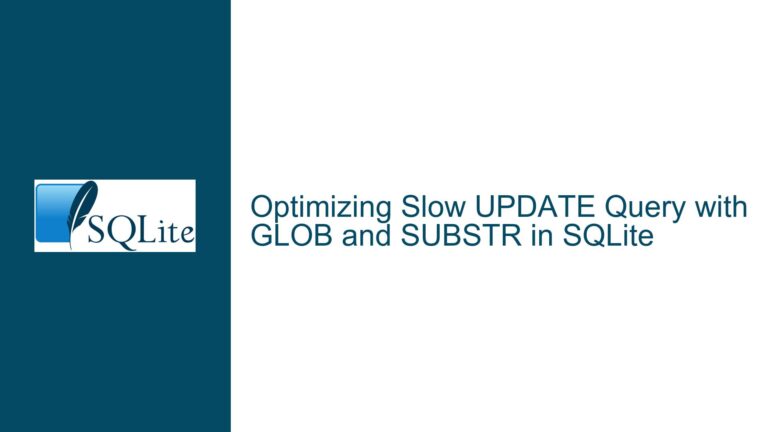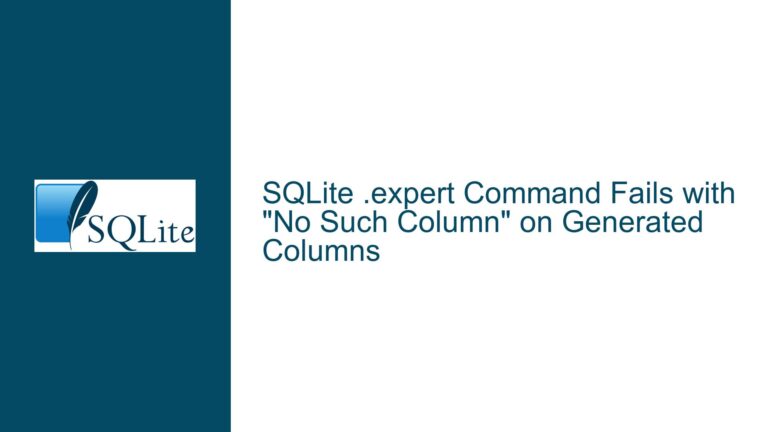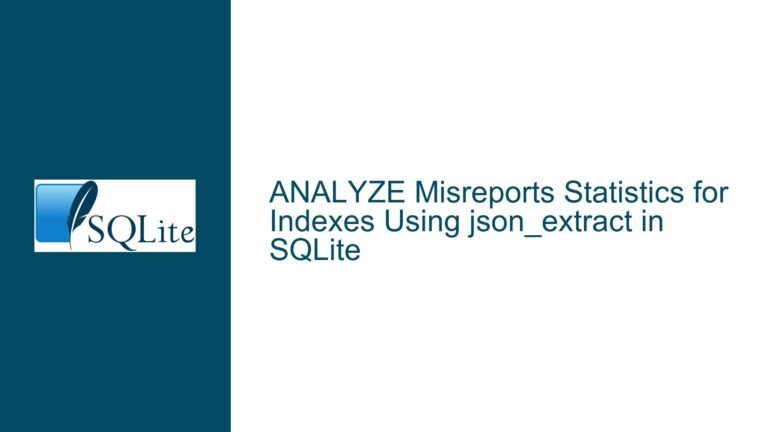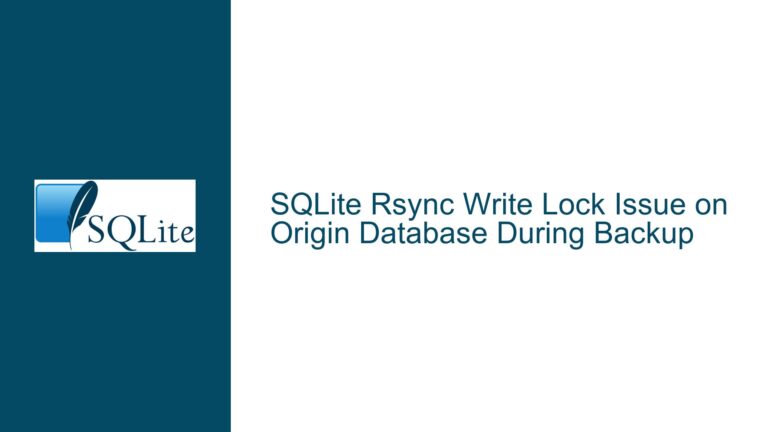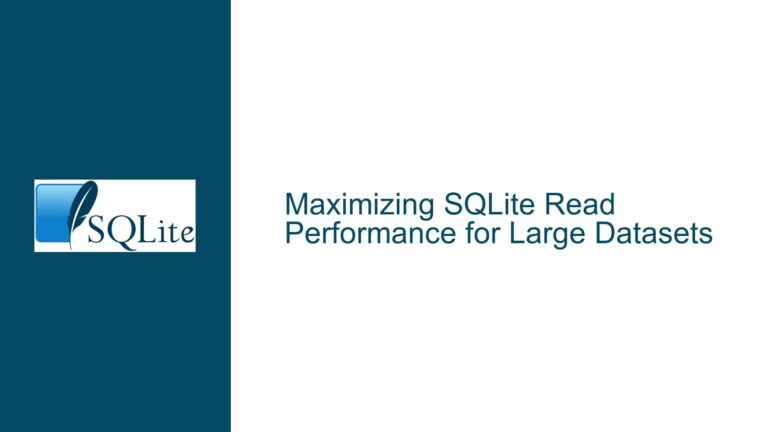SQLite CTE Enhancements: GENERATED and MATERIALIZED Keywords
Proposed Non-Standard CTE Syntax and Its Implications
The discussion revolves around a proposed enhancement to SQLite’s Common Table Expressions (CTEs) by introducing new keywords: GENERATED and MATERIALIZED. These keywords aim to provide more control over how CTEs are evaluated and optimized by the query planner. The primary goal is to ensure that CTEs can act as optimization barriers, preventing query planner optimizations from leaking into or out of the CTE. Additionally, the proposal seeks to guarantee that a CTE is evaluated no more than once, which can be crucial for performance and predictability in complex queries.
The GENERATED keyword, as initially proposed, would enforce that the CTE is evaluated only once, though it does not necessarily mandate materialization. This means the CTE could be implemented as a co-routine, which is a more efficient approach in some cases. The MATERIALIZED keyword, inspired by PostgreSQL’s implementation, would force the CTE to be materialized into an ephemeral table, ensuring that the CTE is evaluated only once and its results are stored for reuse.
The implications of these enhancements are significant. They allow developers to explicitly control the evaluation strategy of CTEs, which can lead to more predictable query performance and avoid common pitfalls associated with query planner optimizations. However, these changes also introduce new complexities, particularly in understanding when and how these keywords should be used to achieve the desired behavior.
Query Planner Behavior and CTE Evaluation Strategies
The behavior of the query planner in relation to CTEs is central to this discussion. By default, SQLite’s query planner attempts to optimize queries by flattening subqueries and pushing down WHERE clause conditions. While this can improve performance, it can also lead to unexpected results when dealing with CTEs, especially when the CTE contains complex logic or user-defined functions (UDFs).
The GENERATED keyword acts as a hint to the query planner, indicating that the CTE should be treated as an optimization barrier. This means that the query planner will not attempt to push down conditions from the outer query into the CTE, nor will it allow conditions from the CTE to influence the outer query. This ensures that the CTE is evaluated in isolation, which can be crucial for maintaining the integrity of complex queries.
The MATERIALIZED keyword takes this a step further by forcing the CTE to be materialized into an ephemeral table. This ensures that the CTE is evaluated only once, and its results are stored for reuse throughout the query. This can be particularly useful when the CTE is referenced multiple times in the query, as it prevents redundant evaluations and can significantly improve performance.
However, the choice between GENERATED and MATERIALIZED is not always straightforward. While MATERIALIZED guarantees that the CTE is evaluated only once, it also incurs the overhead of creating and managing an ephemeral table. In contrast, GENERATED allows for more flexibility, as the CTE can be implemented as a co-routine, which can be more efficient in some cases. The decision between these two approaches depends on the specific requirements of the query and the trade-offs between performance and predictability.
Implementing and Optimizing CTEs with GENERATED and MATERIALIZED Keywords
To effectively implement and optimize CTEs using the GENERATED and MATERIALIZED keywords, developers need to understand the nuances of each approach and how they interact with the query planner. Below, we explore the key considerations and best practices for using these keywords in SQLite.
When to Use GENERATED
The GENERATED keyword is ideal in scenarios where you want to ensure that a CTE is evaluated only once, but you do not necessarily need it to be materialized. This can be particularly useful when the CTE contains complex logic or UDFs that should not be influenced by the outer query. By using GENERATED, you can prevent the query planner from pushing down conditions into the CTE, ensuring that it is evaluated in isolation.
For example, consider a CTE that calculates a complex aggregation or transformation on a dataset. If this CTE is referenced multiple times in the query, using GENERATED ensures that the calculation is performed only once, without the overhead of materializing the results into a table. This can lead to significant performance improvements, especially in queries with large datasets.
When to Use MATERIALIZED
The MATERIALIZED keyword is best suited for scenarios where you need to guarantee that a CTE is evaluated only once and its results are stored for reuse. This is particularly useful when the CTE is referenced multiple times in the query, as it prevents redundant evaluations and ensures consistent results.
For example, consider a CTE that generates a list of unique identifiers based on certain criteria. If this CTE is referenced multiple times in the query, using MATERIALIZED ensures that the list is generated only once and reused throughout the query. This can significantly improve performance, especially in queries with complex joins or subqueries.
Best Practices for Using GENERATED and MATERIALIZED
When using GENERATED and MATERIALIZED keywords, it is important to consider the following best practices:
Understand the Query Plan: Before applying these keywords, analyze the query plan to understand how the query planner is currently handling the CTE. This will help you determine whether GENERATED or MATERIALIZED is the appropriate choice.
Test Performance: Experiment with both keywords to see how they impact query performance. In some cases, GENERATED may provide better performance by allowing the CTE to be implemented as a co-routine, while in other cases, MATERIALIZED may be more efficient by preventing redundant evaluations.
Consider Query Complexity: The complexity of the query and the CTE should also influence your decision. For simple queries, the default behavior may be sufficient, while for more complex queries, using GENERATED or MATERIALIZED can help ensure predictable and efficient execution.
Document Your Choices: When using these keywords, document your reasoning and the expected impact on query performance. This will help other developers understand your decisions and make informed choices when modifying the query in the future.
Example Queries
To illustrate the use of GENERATED and MATERIALIZED keywords, consider the following example queries:
Example 1: Using GENERATED
WITH RECURSIVE cte AS GENERATED (
SELECT * FROM large_table WHERE complex_condition()
)
SELECT * FROM cte
JOIN other_table ON cte.id = other_table.id;
In this example, the GENERATED keyword ensures that the CTE is evaluated only once, without being influenced by the outer query. This can be useful when the CTE contains complex logic that should not be optimized by the query planner.
Example 2: Using MATERIALIZED
WITH RECURSIVE cte AS MATERIALIZED (
SELECT * FROM large_table WHERE complex_condition()
)
SELECT * FROM cte
JOIN other_table ON cte.id = other_table.id
WHERE other_table.column = 'value';
In this example, the MATERIALIZED keyword ensures that the CTE is evaluated only once and its results are stored for reuse. This can improve performance when the CTE is referenced multiple times in the query.
Conclusion
The proposed enhancements to SQLite’s CTE syntax, including the GENERATED and MATERIALIZED keywords, provide developers with more control over how CTEs are evaluated and optimized. By understanding the nuances of these keywords and their impact on query performance, developers can make informed decisions that lead to more efficient and predictable queries. Whether you choose to use GENERATED or MATERIALIZED will depend on the specific requirements of your query, but by following best practices and testing performance, you can ensure that your queries are optimized for both speed and reliability.
